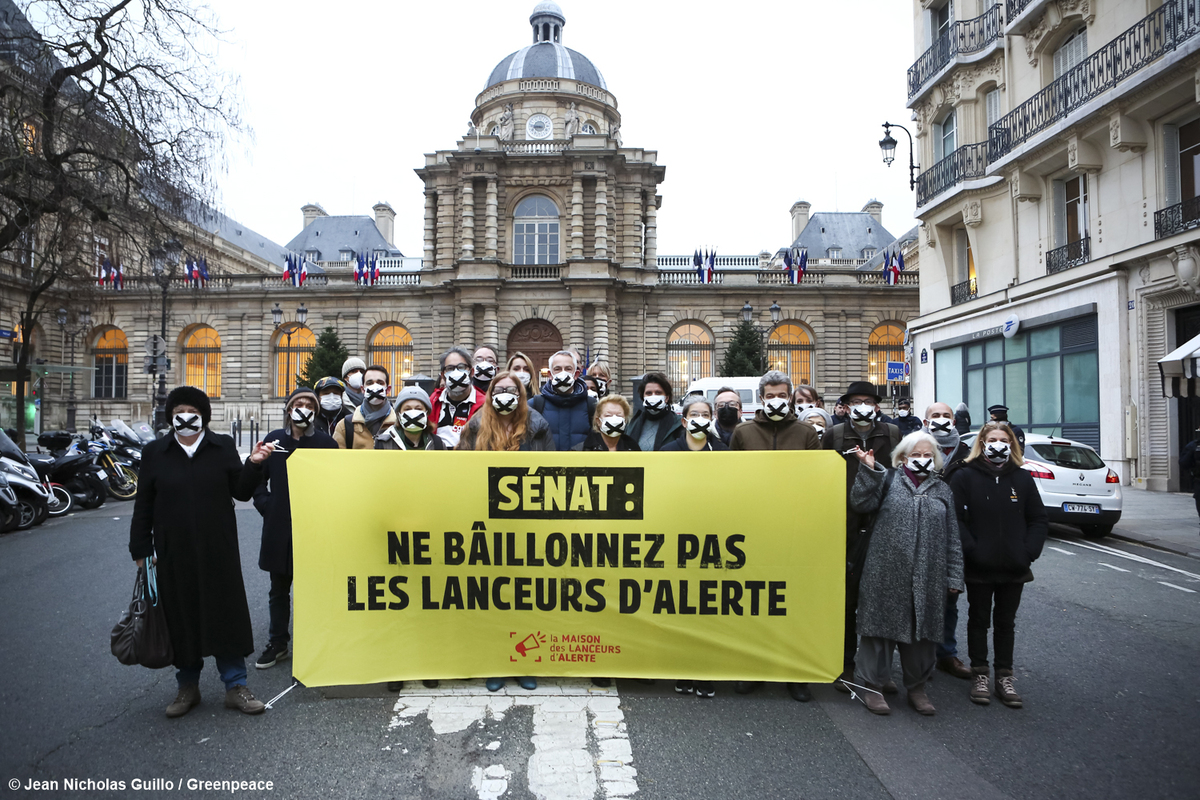

Whistle-blowers: 36 associations and trade unions are calling out senators
On Wednesday 19 January, while senators were getting ready to discuss the bill aiming to improve protection for whistle-blowers, 36 organisations from civil society, comprising of associations, trade unions, and whistle-blowers, gathered together before the Senate to call upon senators to clarify and reinforce protection measures for whistle-blowers in France.
On Monday, these same organisations published an opinion column to remind of the importance of protecting whistle-blowers who are “first in line to defend general interests”.
This action aims to call out parliamentarians and public opinions on the dangers presented by the laws voted upon by the Senate for the rights of whistle-blowers and the freedom to inform and alert. Many amendments filed by the senators effectively come back to the benefits of the Sapin II law and break the requirements of the European guidelines that this bill is intended to change. While France has just taken chairmanship in the European Union, it risks becoming bottom of the class.
This guideline, passed by the European Union in 2019 thanks to rallying from civil society, does however constitute a major step forward in recognising and protecting the look-out role that whistle-blowers play in times where our freedom and rights are threatened everywhere in Europe. Whether they signal risks of public health crises to the authorities like Irène Frachon (Mediator), or reveal the mysteries of tax fraud like Antoine Deltour (Luxleaks) or of mass surveillance like Edward Snowden (NSA), whistle-blowers establish a safety net for our democracy. Yet they are too often facing retaliation and threats that the Sapin II law, despite its progress, has not been able to overcome.
The bill passed unanimously by the National Assembly on 17 November responds in part to these shortcomings. It goes over the many demands of the organisations gathered today before the Senate which, in a report dated 22 November, maintained that it represented a “considerable step forward for whistle-blowers, whose rights are strengthened”.
Many senators nevertheless propose that we revisit these arrangements, going back to the European guidelines on the Sapin II law itself.
For the organisations gathered before the Senate, these amendments, if they are passed, will constitute a colossal threat, susceptible to persuading a number of citizens not to inform on abuse which they are witness to and to put those who nevertheless decide to take the plunge at risk. Nowadays, whistle-blowers put themselves at risk of true social and professional suicide. The implementation law must remedy this situation, rather than aggravate it, for the good of everyone.
Photo © Jean Nicholas Guillo / Greenpeace
Whistle-blowers: 36 associations and trade unions are calling out senators
Translated from the French by Joely Justice